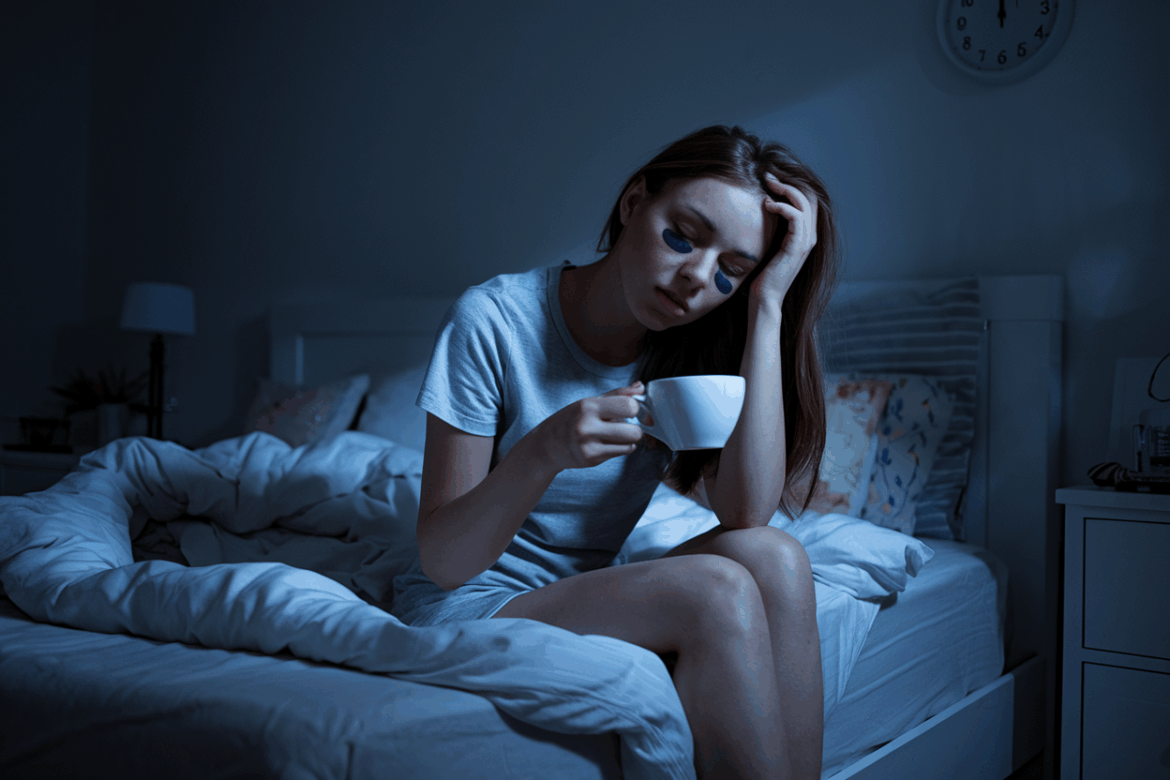As an Amazon, ShareASale and Impact Associate, we earn from qualifying purchases. This means that if you click on a link in our blog and purchase an item from Amazon or any of the ShareASale & Impact partners, we receive an affiliate commission at no extra cost to you. This helps us keep our content free and continue to provide valuable information. Thank you for your support! Read our full disclosure here
I used to think sleep deprivation was just something college students and new parents went through. But the truth is, you can be walking around sleep-deprived without even realizing it — and I was.
I wasn’t pulling all-nighters or skipping sleep entirely. I was getting 5–6 hours a night, glued to screens until my wife screams “Chaaaarlieee….” and that’s the second I usually close my eyes, only to wake up groggy, anxious, and weirdly irritable. Sound familiar?
If you’re wondering whether you might be sleep-deprived, or you just feel off and suspect sleep might be a culprit, this post is for you. I’ll break down:
- Sneaky signs of sleep deprivation
- What it does to your brain and body
- What actually helped me recover my sleep (and sanity)
😵 1. Subtle Signs You’re Sleep-Deprived
Sleep deprivation isn’t always dramatic. Sometimes it creeps in quietly. Here’s what I noticed before it hit me like a freight train:
- Constant yawning mid-morning, even after coffee
- Brain fog — couldn’t focus, forgot simple things
- Mood swings and low patience (hi, emotional overreactions)
- Craving sugar/carbs all day long
- Waking up tired even after a “full night”
- Skin breakouts and dull complexion
- Increased anxiety, especially in the evenings
You don’t have to check every box — even a few can be red flags.
🧠 2. What Sleep Deprivation Really Does to You
Lack of sleep does more than make you tired. It messes with your hormones, immune system, mental health, metabolism, and memory.
Your brain can’t flush out toxins properly without deep sleep. Your body can’t repair itself. It’s like trying to charge your phone with a broken cable — no matter how long it’s plugged in, the battery never fills.
For me, this showed up as anxiety spikes, constant colds, and low motivation. I started researching sleep hygiene and recovery strategies out of desperation — and it actually changed everything.
🌿 3. How I Recovered From Sleep Deprivation (For Real)
Getting back on track didn’t happen overnight (ironically). But with a few changes, I started sleeping better — and everything else started improving too.
✔️ I Made Sleep a Priority
Sounds obvious, but I stopped treating sleep like a luxury and started protecting it like my mental health depended on it — because it did.
✔️ I Upgraded My Sleep Setup
I realized I was sleeping on a worn-out mattress and a pancake pillow — not exactly recovery material. I switched to the Emma Cooling Elite Mattress and immediately felt a difference.
It cradles your body just right, doesn’t trap heat (I used to wake up sweaty!), and has this gentle, supportive feel that’s perfect whether you’re a side sleeper or toss-and-turn type like me.
I paired it with their Emma Foam Pillow — it’s adjustable, which was a total game-changer. I could finally stop folding my pillow like origami just to get comfy.
And because I wanted to keep everything fresh and allergy-free, I added a waterproof mattress protector too. Especially helpful if you live somewhere humid or tend to sweat at night (guilty).
✔️ I Set a Wind-Down Routine
Dimming the lights, putting my phone away an hour before bed, even a short journal entry — it sounds cliché, but it worked. My brain started recognizing the rhythm, and falling asleep became easier.
✔️ I Caught Up Slowly
I didn’t try to “make up” sleep by napping all day. Instead, I went to bed 30–60 minutes earlier consistently and let my body recalibrate naturally.
🌙 4. Final Thoughts: Listen to the Signals
Sleep deprivation doesn’t always scream. Sometimes it whispers. If you’ve been running on empty, feeling foggy, anxious, or just not yourself, take a moment to ask: how’s your sleep, really?
For me, the combination of creating a wind-down routine, resetting my sleep schedule, and investing in the right mattress and pillow completely changed how I feel — mentally, physically, emotionally.
And if you’re thinking your bed might be part of the problem? Emma’s 100-night risk-free trial makes it super easy to test it out in real life — no pressure, literally.
Wishing you deeper rest and brighter mornings 💫
